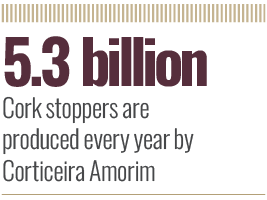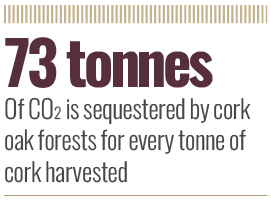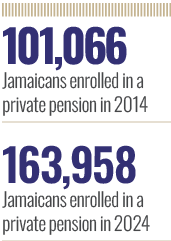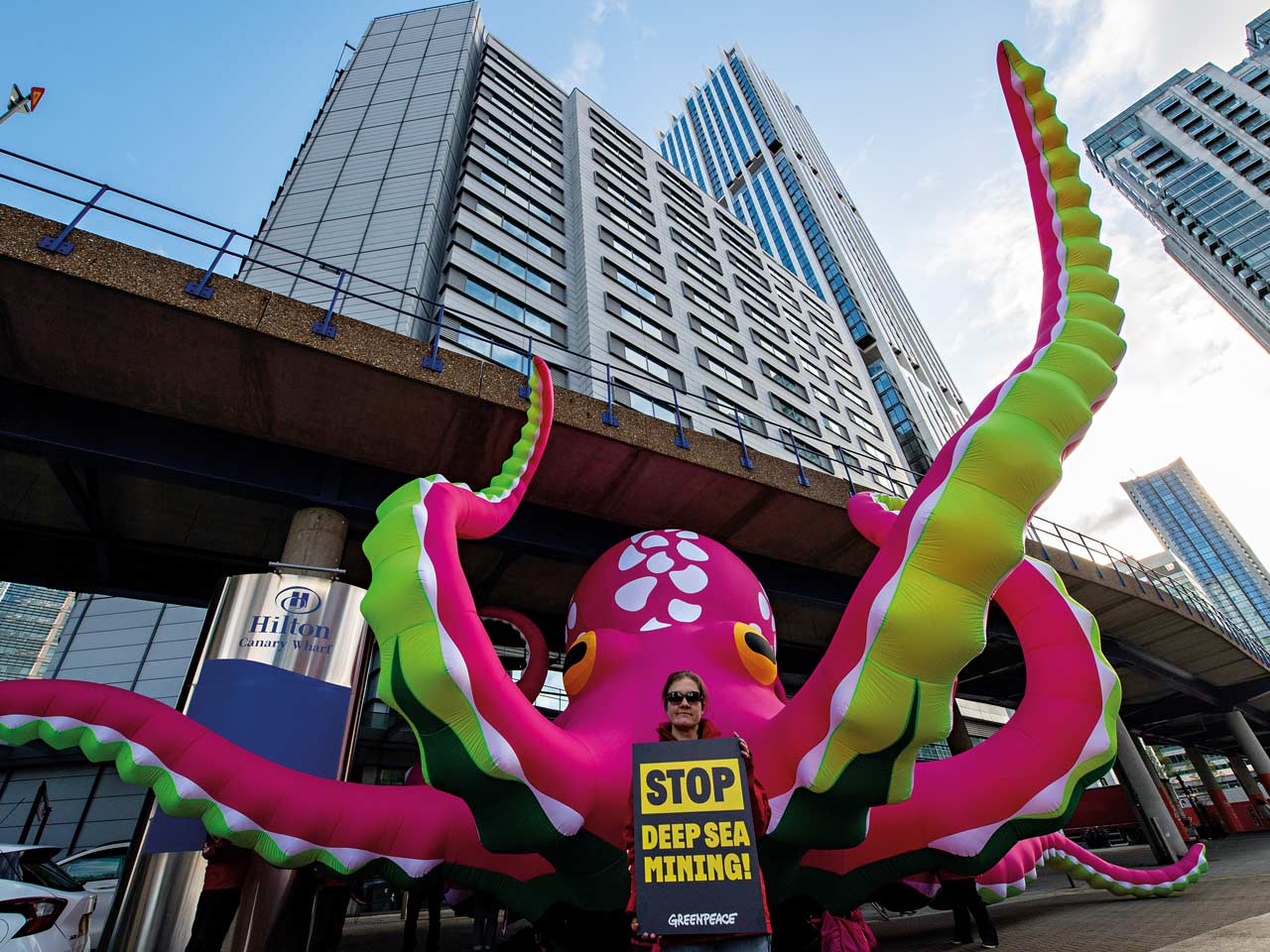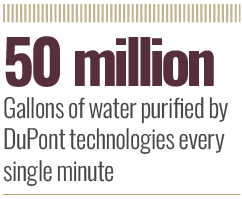To an outsider, offshore tax havens might look like minor jurisdictions on a map, but for the world’s most wealthy, they are anything but, acting as mechanisms for protecting and controlling vast sums of money. There has always been a distance between wealth and visibility, whether through the turquoise shores of the Cayman Islands or the golden vaults of Swiss banks. But in a sudden reversal, these very havens that once promised discretion and protection no longer work quite like they used to.
Offshore finance rarely disappears. Instead, it adapts to changing rules and oversight, while steadily continuing to grow in scale. Estimates suggest that between $21trn and $32trn of global financial assets are now held offshore, although the confidentiality of these jurisdictions makes reliable figures few and far between. The Tax Justice Network believes that the world loses around $427bn in tax revenue every single year to these illicit arrangements.
But tax avoidance is not the simple affair it once was. Traditional secrecy jurisdictions face greater pressure under OECD’s Global Minimum Tax and Reporting Standard, which has made the once convenient offshore loophole more visible and costly. In response, the ultra-wealthy are not retreating, they are adapting.
When old tricks stop working, new ones take shape. Today’s high-net-worth individuals find refuge in dual passports, tax-friendly residencies, DeFi platforms and the odd private island thrown in for good measure. Some of these choices offer genuine financial advantages; others arguably offer the illusion of escape. Still, the inventiveness of these workarounds suggests that the offshore mindset remains firmly intact, only now it is just more scattered across the globe and less reliant on the familiar offshore havens.
Adaptation of traditional tax havens
Burying fortunes in offshore sand is not impossible today, but it is far more difficult than it once was. With stricter regulations in place about greater transparency, financial havens are finding it difficult to operate under the radar as they once did. Leading the way is the OECD, whose two big initiatives, the Common Reporting Standard (CRS) and Global Minimum Tax (GMT), are directly challenging the structure of offshore finance. The CRS launched in 2014 and changed everything by requiring financial institutions to share information on foreign account holders within their legal domicile. According to Tax Justice UK (TJUK), “The CRS has helped reduce tax evasion, not only because of the foreign account information that countries got, but also because it has caused a deterrent effect.” The mere threat of being exposed has prompted many to come clean.
Traditional tax havens haven’t vanished, they have just adapted
But even the CRS has its limits. “There are many loopholes still,” Tax Justice UK warned. Not every country participates – especially developing countries that lack the infrastructure to cooperate. The US opted out of joining, relying on its own regime, FATCA. “The US receives a trove of information, but shares little in return,” TJUK explain.
Then came the OECD’s Global Minimum Tax, introduced in 2021, a supposed fix for profit shifting. On the surface, it may seem like trouble for tax havens, but upon digging deeper things aren’t quite as clear cut. As Tax Justice UK puts it, “Pillar two was never about tax avoidance, but about minimum taxation.” What this means is that it doesn’t prevent companies from moving profits to tax havens; it simply ensures that at least 15 percent tax is collected on those profits. Ironically, this made the proposal appealing to some low-tax jurisdictions, as they saw it as a way to profit while technically adhering to the rules.
The GMT’s coverage is also limited. Only multinational groups with revenues over €750m are covered, excluding a substantial portion of influential companies. Because of its complexity, the system is challenging for countries with fewer resources to implement, often the very ones that are hit hardest by tax avoidance. “These are the countries that suffer the most from tax avoidance in proportion to their budget,” Tax Justice explains. Ultimately, a solution that neglects the Global South cannot effectively be considered a global solution.
Despite the tight fiscal regulations, traditional tax havens haven’t vanished, they have just adapted. Jason Sharman, Professor of Politics and International Studies, who spent years researching offshore finance and tax havens, commented: “Offshore financial centres in general are doing fine, there is probably more money offshore than ever before, subject to the caveat that it is harder than it might seem to distinguish ‘offshore’ from ‘onshore.’” They have re-emerged as sophisticated destinations for transparent and compliant wealth management. The Caymans maintain a register of beneficial ownership, a clear reversal from how things ran in the past. Although it wasn’t entirely self-initiated, it was a response to escalating international expectations. In November 2023, the Cayman Islands passed the Beneficial Owner Transparency Act, which came into effect in July 2024. The law broadened the rules around disclosure, requiring entities that were previously excluded like exempted limited partnerships and foundation companies, to identify and report their beneficial owners.
Although tax-friendly options have stayed high in demand, now we are seeing them take very different forms from that which we are used to. Citizenship-by-investment (CBI) schemes are growing massively in popularity, offering passports to wealthy individuals looking for flexibility. The OECD is pushing back, but as with past efforts, opportunities may develop faster than it takes the regulations to respond.

So, are tax havens on their way out? Not exactly. But the days of undisclosed dealings and no accountability are possibly behind us. Today, it is getting more expensive to comply with time and resources, regulatory loopholes are narrowing, scrutiny is unrelenting. In the words of Tax Justice UK, “Even before the new Trump administration, parts of the package were faltering, and now even the global minimum tax has an uncertain future.” It is not so much that tax havens are vanishing, but it is that they no longer look or operate as they used to. The traditional model is replaced by new and more compliant forms of wealth management. In this sense, ‘decline’ is more about evolution than extinction. History shows us one thing for certain: where wealth flows, new solutions follow.
New strategies and familiar goals
In place of secluded financial havens stands a whole new spectrum of strategies designed to optimise tax efficiency. Whether we are talking digital currencies, decentralised financial platforms, second citizenship schemes or entire private island developments, those looking to safeguard their wealth have had to become more resourceful in recent years. While traditional tax havens aren’t irrelevant, they are in the midst of significant change. The tighter regulations, greater political pressure, and need for transparency has become more pronounced and pushed the industry to adapt. Some of these adaptations are pushing the limits of legality, while others are challenging ethically. But all of them signal one thing: offshore wealth isn’t going away any time soon, it is just getting more sophisticated.
The second passport boom
As touched upon, one of the most talked about trends in recent years has been the rise of Citizen-by-Investment (CBI) schemes. These initiatives, granted by countries including St. Kitts and Nevis, Malta, Vanuatu and many more, allow individuals to purchase citizenship in exchange for investments, often in real estate, government bonds or direct payments to state development funds. Since 2014, Eastern Caribbean countries alone have issued over 100,000 CBI passports, which just goes to show the growing popularity of these schemes across markets globally.
Those looking to safeguard their wealth have had to become more resourceful
But are these schemes undoubtable game-changers for tax avoidance? Not everyone is convinced. Professor Sharman comments, “The potential of CBI for tax evasion is vastly over-hyped and makes no sense. With the exception of the US, tax is based on residency, not citizenship. I am an Australian living in Britain; this doesn’t mean I am exempt from UK tax.” Still, some researchers say the story doesn’t end there, as recent data shows a more complex picture of how CBI schemes may, in practice, enable financial opacity. A 2023 study published in the Journal of Public Economics found that countries introducing CBI programmes experienced a significant rise in cross-border bank deposits in tax havens, suggesting that second passports may be used to sidestep automatic information exchange between countries. Since tax havens typically share financial data based on the account holder’s citizenship, not residency, CBI can be used as a loophole. A new passport can allow individuals to open accounts under their new nationality, potentially shielding those assets from their home country’s tax authorities. As the study puts it: “CBI programmes offer citizenship rights in return for a financial investment or donation as low as $100,000. If the tax evader uses the acquired citizenship to open a bank account in a tax haven, the tax haven will exchange tax information with the country of acquired citizenship – not the actual country of (tax) residency. CBI programmes enable tax evaders to escape tax information exchange.”
Further supporting this concern, research from the EU Tax Observatory showed that jurisdictions with high-risk CBI programmes, such as Dominica, St. Lucia, Cyprus, Grenada, Malta and Vanautu, saw bank deposits in tax havens increase up to 55 percent after their CBI schemes were launched or expanded.
DeFi frameworks allow cross-border transactions that are difficult to trace, regulate, or tax
So, while CBI initiatives may offer lifestyle perks such as visa-free travel or a hedge against political uncertainty, their potential to encourage a lack of financial transparency still remains controversial. Some argue they facilitate corruption, contribute to housing crises in smaller economies and undermine the push for tax transparency internationally. As Tax Justice UK explains, “Citizen-by-investment programmes have negative spillovers in other jurisdictions and we have seen high-profile cases where authorities challenge the validity of these schemes.”
Heavily debated? Undoubtedly. Misused? At times. But at the end of the day, a second passport can bring leverage and freedom, regardless of the reason someone is reaching for it.
Offshore goes digital
If CBI is a political workaround, then decentralised finance (DeFi) is the technological one. Built on blockchain technology, DeFi platforms create a world where you can lend, borrow, trade and invest without ever stepping foot in a bank. No middlemen, no paperwork, just code. In theory, it is financial freedom, giving users total control and instant access to powerful tools. But in practice? It comes with its own unpredictable challenges.
Cryptocurrencies and DeFi frameworks allow cross-border transactions that are difficult to trace, regulate, or tax, especially when users rely on self-hosted wallets or anonymous profiles. Still, sceptics say the hype often exceeds reality. “Crypto is not even that great for evading taxes or laundering money; cash works better,” Sharman puts it bluntly.
Tax Justice UK shared its concerns – not about crypto’s effectiveness, but about the lack of oversight. “DeFi provides greater risks of tax avoidance because unlike in the case of traditional finance, the middleman is automated – merely a smart protocol on the blockchain.” But, they note, “there was a person involved in putting this protocol there, owning, managing or earning income off it. It is a matter of creating the right reporting liability. The problem is that the technology evolves much faster than government can keep up.”
Offshore wealth isn’t going away anytime soon, it is just getting more sophisticated
In practice, DeFi operates in a grey zone: transactions can be difficult to trace without an identity being linked, but once that link is made, the full transaction history is laid bare. In fact, a study by the National Bureau of Economic Research estimated that the average amount of unpaid taxes among crypto non-compliants ranges between $200 and $1,087 per person per year. So, while many crypto investors fail to declare their holdings, each typically owes a modest amount of taxes which, across millions of users, adds up to a substantial loss in public revenue.
In response, institutions globally are ramping up their regulations. The OECD’s upcoming Crypto-Asset Reporting Framework (CARF), set to take effect in 2026, is designed to bring crypto transactions under the same level of reporting and transparency as traditional financial accounts. But as with the Common Reporting Standard (CRS), implementation may be sporadic, particularly in developing countries, which often lack the technical capacity to participate fully.
The irony is that this blockchain, which is known for its privacy, is also an irreversible public ledger. Once linked to an identity, a user’s entire transaction history becomes visible. Crypto isn’t invisible, it is permanent. This divide could make DeFi an effective tool for transparency or expose a plethora of financial misconduct.
Private islands and floating states
The most literal take on going offshore might just be this: buying your own island. What once felt like cinematic fiction is now becoming a reality for ultra-high-net-worth individuals looking for seclusion, control and a place to entirely call their own. Some are even taking it a notch further by developing ‘seasteads’ or floating city states designed to have minimal government oversight. One such example is Freedom Haven, a project in the South Bay of Bengal designed to create a community outside any nation’s Exclusive Economic Zone, providing a new form of governance with self-sovereignty and the freedom to experiment with alternative systems that avoid traditional state regulations.

But experts remain unimpressed. “Attempts at the creation of self-governing territories have been going for at least 50 years, they have always been flops and farces,” says Sharman. “I don’t see anything changing.” While appealing in theory, the logistics and legal hurdles in creating these unrestricted private jurisdictions are enormous. A lot of these projects become unsuccessful or end up rebranded as high-end real estate ventures, rather than actual self-governing communities. Nevertheless, the idea still holds a certain allure. As surveillance tightens and financial oversight expands, private islands stand as the dream escape, not just from taxes, but from accountability all together.
What can be done
Everyone has got their own theories on how to tackle tax avoidance, but let’s be honest, the solution will always change depending on where you are standing and who stands to gain. Tax Justice UK calls this the ABCDEFG3.
“To guarantee wealthy individuals and corporations pay their fair share of taxes we need the ABCDEFG3. That starts with the ABC of tax transparency: automatic information exchange, beneficial ownership transparency through public registers for companies, trusts and other legal vehicles, and public country-by-country reporting for multinationals. Then there is the DE of domestic measures to ensure transparency results in effective accountability, through the disclosure of sufficient public data, and enforcement by well-resourced and operationally independent tax authorities.
“The FG2 covers the international elements: formulary apportionment with unitary taxation, to end corporate tax abuse by ensuring that profits are taxed in the location of the real, underlying economic activity; governance reform, centred on the establishment of a genuinely, globally inclusive process for the setting of tax rules and standards, under UN auspices; and a Global Asset Register (GAR), to connect and broaden the range of beneficial ownership registers across all legal vehicles and high-value assets, across jurisdictions, to provide a critical tool against abuse of tax regulations and sanctions.”
“Finally, G3 stands for good taxes – a catch-all covering a progressive and effective overall tax system, and significant individual components of the tax justice agenda including wealth taxes, climate-related tax measures, excess profits taxes and minimum effective tax rates.” Apostolos Thomadakis, Head of Research at the European Capital Markets Institute, isn’t one to mince words when it comes to tax evasion. In a report for the Centre for European Policy Studies, he laid out his clear and pragmatic vision. “The progress made has been substantial,” Thomadakis acknowledges. “But much remains to be done.” For him, confronting offshore systems and modern forms of tax dodging means moving promptly and decisively.
“Implementation should be enforced, not only with the automatic exchange of information, but also in the context of beneficial ownership registries. Information exchange frameworks should be adapted to the current realities (crypto-assets), and the assets falling under their scope should be expanded (real estate, art and gold). Tax authorities need to be equipped with all the necessary tools (artificial intelligence) and rules that will allow them to identify tax compliance risks and to process the data collected.” But technology won’t fix a broken system alone. “International cooperation and communication between jurisdictions and different standard-setters should be strengthened, as well as in-country communication between the relevant authorities,” he says.
Whether it is regulators, compliance authorities or oversight institutions, Thomadakis wants everyone on the same page, working together in a way that can keep up with the pace of today’s financial scene.
A system built to survive
Offshore finance isn’t what it used to be, and neither are the reasons people use it. What once operated with little oversight now runs through legal grey zones, regulatory gaps, and sophisticated planning. It is no longer just about outright tax evasion anymore; it is about protecting assets, managing uncertainty, and dealing with a more fragmented international landscape. As Tax Justice UK puts it, “Tax havens and secrecy jurisdictions did not come into being overnight, and they won’t disappear quickly.” Much of that resilience lies in the fact that “the financial sector is captured by a tax avoidance industry,” which they argue “negatively impacts the democratic process and how well the economy works for regular people.”
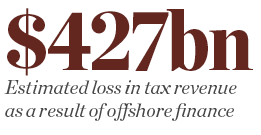
So, what now? The intention to take action hasn’t disappeared. “There is still clearly political will,” TJUK says, “which often stems from popular dissatisfaction with tax abuse from big multinationals and wealthy individuals.” Even in a world where international cooperation feels very strained, they suggest that tax policy may be one of the few areas that is making steady progress. By 2027, a new UN tax convention, backed by countries in the Global South, could fundamentally change how international tax cooperation works.
Perhaps the most unpredictable influence is the US. Under President Trump, the US pulled back from OECD initiatives and slowed progress, often influencing the direction of talks, only to withdraw when an international agreement was close. “The withdrawal of Trump and the US may have a positive impact on the field of international tax cooperation. This is because in the last decade the dynamic has been that the US has tried to control the direction of cooperation on several occasions. They take the negotiations in the directions they prefer, and at the last moment they end up abstaining from participating,” TJUK explained.
They suggest that the US’ decision to step back from these negotiations, whether by abstaining or taking a more confrontational stance, might actually remove a longstanding obstacle. Without that involvement, there may be space for other countries to move forward effectively. There is no doubt it is a complicated situation, but the push for a fair tax system is still very much in motion. If anything, changing geopolitical influences could open the opportunity for a stronger, more balanced international tax framework, depending on how EU countries respond.
Tax policies globally have long been influenced by those with the loudest voices and the deepest pockets. But with the US retreating from international negotiations surrounding tax, it might give other countries the space to push for reforms that better reflect those that are most affected but heard the least. Still, change won’t come easily.
The offshore system often adapts more quickly than the regulations designed to contain it. Even if new regulations tighten, those determined to protect their wealth will always have the incentive to look for the next loophole, jurisdiction or digital workaround. Whether it’s decentralised finance or second passports, strategies today are harder to trace and are increasingly designed to stay just within the bounds of legality.
What has really changed is not the intent, but the method. And unless regulations keep pace, the gap between practice and policy will only widen.
